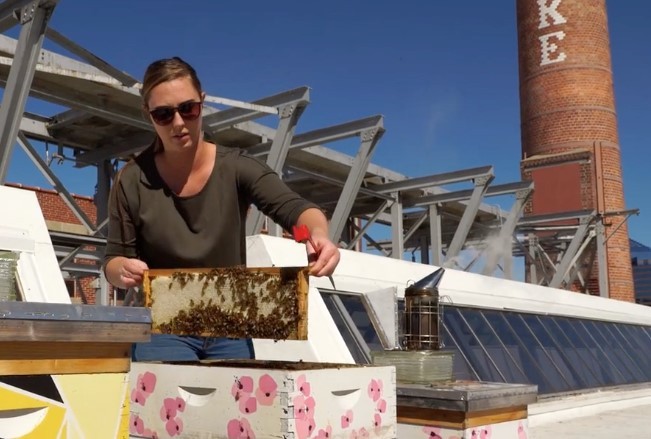
A third generation beekeeper, who keeps hives on the roof of the American Tobacco complex in Durham, describes how honeybees are struggling to adapt to changing seasons and higher summer temperatures.
A Western NC fishing guide, who's been angling for trout since he was ten years old, warns that his favorite streams are getting warmer. When the water heats up, the trout don’t eat. If the trend continues, it will put him out of business.
The manager of the Alligator River National Wildlife Refuge, which sits on NC's Albemarle Sound, explains that, as the ocean rises, salt water is moving inland and killing species that are not salt tolerant – turning pine forest into marshland.
An outdoorsman, who has hunted all his life in the woods of eastern North Carolina, notes that he has to keep an eye out for ticks all the way into December, which was unheard of when he was growing up.
The Z. Smith Reynolds Foundation has provided funding to tell these and other stories through a project called Climate Stories NC. This compelling new series of short form videos provides an opportunity for North Carolinians to describe the ways in which a natural setting that they know intimately is threatened by climate change. The videos are produced by Dr. David Salvesen from the Institute for the Environment at UNC Chapel Hill along with Triangle-based documentary filmmakers John Wilson and Warren Gentry. The purpose of this project is to increase the level of social engagement and action around climate change in our state.
As Salvesen puts it: "There is broad consensus within the scientific community that human activities are altering North Carolina's climate. Yet, much of the public remains either unaware or unconvinced of the causes and consequences of climate change. This project is rooted in a growing body of research on climate change communication, which finds that personal narratives can help bring distant problems closer to home and reveal true causes and impacts that otherwise feel invisible or unreal."
Now that these high-caliber videos have been produced, our challenge is to share them widely across the state. And, you can help. We encourage you to watch these videos, and if one or more resonates with you, please take a few minutes to spread the word through your social networks. Each video can be easily shared through Facebook, Twitter, Tumblr or e-mail.
The more North Carolinians can relate to the actual impact climate change is having on individuals, businesses and the health of the environment across our state, the more inclined we all might be to start doing our part to mitigate its long-term effects.
